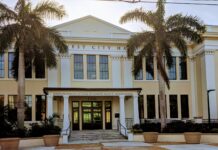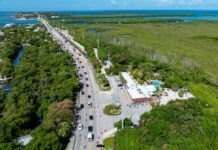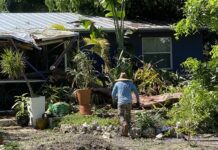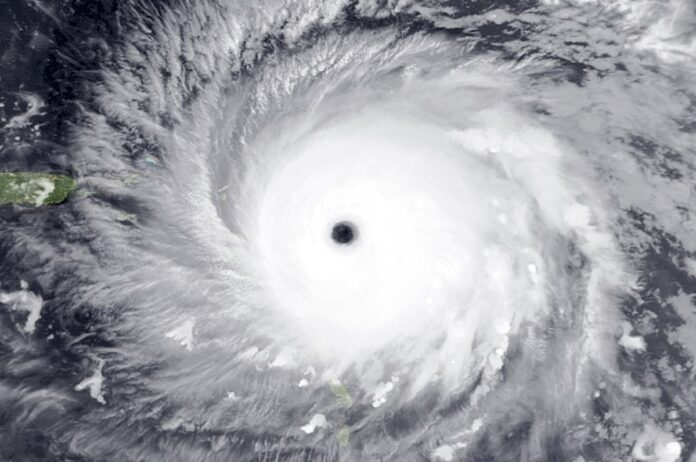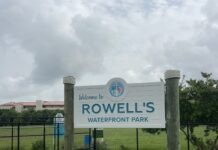By Alex Rickert and Jim McCarthy
Laments about the state-backed Citizens Property Insurance Corp., with exorbitant rising rates in an island chain that functions as a “donor county” for the rest of the state, are nothing new.
But according to questions recently asked by federal legislators, even skyrocketing rates aren’t enough to assuage concerns that a “worst-case scenario” natural disaster in Florida could leave the corporation seeking a bailout from other Florida policyholders – or the federal government. Now, Congress wants a closer look.
In a Nov. 30 letter addressed to Florida Governor Ron DeSantis, Florida Insurance Commissioner Michael Yaworsky and Citizens President and CEO Tim Cerio, Senate budget committee chairman Sheldon Whitehouse (D-R.I.) requested “information and documents concerning Citizens Property Insurance Corporation’s plans to address increased underwriting losses from climate-related extreme weather events and other disasters.”
The letter goes on to detail “increasing concern(s) about the potential economic consequences of an eventual widescale decline in property values caused by increasing exposure to climate risks and the attendant increase in insurance premiums and decrease in insurance availability.”
The letter calls Florida’s insurance landscape “particularly dire,” referencing, among other items, that some Florida premiums have expected increases of more than 40% this year, while at least three quarters of the insurance policies in every Florida county are at risk of non-renewal or a rate increase.
It references a report by the National Oceanic and Atmospheric Association that through less than nine months in 2023, the U.S. experienced “23 extreme weather disasters … with costs of $1 billion or more, the most in recorded history.”
When these factors are combined with Citizens’ “rapidly expanding market share” – now nearly 20%, more than double its 2020 figure – Whitehouse wrote that there is legitimate concern a major disaster could leave state leaders turning to the federal government for a bailout if the corporation can’t shell out billions in claims, “put(ting) the federal government (and by extension, all American taxpayers) at substantial risk.” He cited a 2018 University of Cambridge report that a major hurricane strike to the Miami area and panhandle could carry a projected cost of $1.35 trillion in damages.
Last March, DeSantis acknowledged that Citizens would likely be unable to pay out claims if the state faced another large hurricane.
“I think most people know Citizens has not been solvent,” he said at a press conference in Fort Myers, which took the brunt of Hurricane Ian in September 2022. “If you did have a major hurricane hit with a lot of Citizens property holders, it would not have a lot to pay out.”
Though Citizens is supposed to be Florida’s insurer of last resort, the corporation’s June 30 company overview, the most recent available on its website, showed a total of 1,345,400 policies, insured for a total value of more than $561 billion. And what some policyholders may not realize is that according to state law, if the company’s claims after a disaster exceed its ability to pay, it may collect “assessments” from other policyholders around Florida – regardless of whether or not they are Citizens customers.
A concerted effort by Florida lawmakers throughout the last year to move policies away from Citizens saw the passage of Senate Bill 2A in December 2022, which requires the corporation’s customers to accept offers from other private insurers if offered a rate within 20% of their Citizens premium. The months since have seen several insurers submit proposals to regulators to assume Citizens policies, including a late-July approval by Yaworksy that could see up to 184,000 policies move to Slide Insurance Co., Safepoint Insurance Co., Southern Oak Insurance Co., Florida Peninsula Insurance Co. and Monarch National Insurance Co.
Florida policyholders, meanwhile, continue to blast rate increases by Citizens, and in August, Yaworksy ordered the corporation to go back to the drawing board with its proposed hikes. As originally submitted, Citizens’ rate proposal saw increases of 12% for “multi-peril” policies on primary residences – the maximum allowed in a single year, per state law.
Rate increases for Monroe County were eventually announced at 10.8% for wind-only policies on primary homes, 48.2% for wind-only policies on non-primary homes, 5% for wind-only on primary residence condos and 14.9% for wind-only on non-primary condos.
Insurance rate watchdog FIRM (Fair Insurance Rates in Monroe) has listed a 10% cap for insurance premium increases as its top priority for Florida’s 2024 state legislative session, along with an increase from $1 million to $1.5 million for Citizens’ eligibility cap with rising statewide reconstruction values.
According to FIRM, from 2003-2021, premium payments to Citizens in Monroe County exceeded total claim payouts by $865 million. These numbers, the nonprofit said, “are not commensurate with Monroe’s risk, because they don’t take into account Monroe’s strict building codes and are founded on inaccurate modeling.”
FIRM president Mel Montagne noted the state has been helping property owners with insurance coverage for some 50 years, well before Citizens was created. In 1972, the Florida Windstorm Underwriting Association was formed as an insurer of last resort to provide wind-only coverage in Monroe County.
Through time, coverage expanded to include other coastal regions. He noted that the ability to surcharge every policyholder “assures the state won’t have to go to the federal government for help.”
Montagne said he finds it interesting that the Senate’s investigation is coming to light just now amid DeSantis’ presidential run.
“I can’t help but think it’s politically motivated,” he said. “I’m not red or blue. Call a spade a spade.”
Whitehouse’s letter establishes a Dec. 21 deadline for a response to seven groupings of questions. Requested items include:
- Information on modeling and analysis to show estimated total exposure to Citizens in various worst-case hurricane scenarios.
- Modeling and analysis to estimate Citizens’ market share for insurance policies over the next 10 years.
- Modeling and analysis to determine Citizens’ ability to fully pay out claims in various loss scenarios.
- The corporation’s current assets, as well as the maximum total claims it would be able to pay out without levying assessments on Florida policyholders.
- Communications between Citizens and DeSantis, Yaworsky and other state officials regarding the corporation’s current and future solvency, including what Citizens or the state of Florida would do if Citizens was unable to cover its losses from a disaster scenario.
- Communication between Citizens and these same officials regarding the possibility of a federal bailout if Citizens could not cover its losses.
